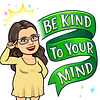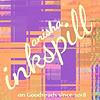Take a photo of a barcode or cover
I’m going to be perfectly honest. I gave up on this one. I think it really came down to the amount of detail. I can appreciate that Clark had a wealth of information at her fingertips and it was probably entirely too enticing not to include everything she possibly could. However, when inclusions were showing redundancy and not actually adding to the narrative, I found myself becoming frustrated.
Without a doubt, the best biography I've ever read. I don't know how anyone could write a more comprehensive, unbiased, detailed Plath biography than this. What a masterpiece. I wish I'd written it.
I did not read the whole book this year! I read the first part (about a third of it) in 2020 while writing my senior English thesis paper on ocean and mirror imagery in Plath's poetry. Then I read a bit more of it in 2022 and then about 50-60% of it this year. It's crazy to think how long it is and how long it's taken me, but it feels like an accomplishment to have finished it and know so much more about the writer who is probably my biggest inspiration!
I am going to make SP's famous tomato soup cake to celebrate. I don't know when, but at some point. Her life, poems, novel, and short stories blow me away. Sylvia, I wish I'd known you.
My Plath exploration does not end here. There is still so much to read. I have The Silent Woman as my next Plath-related book on the TBR.
I'd give this way more than 5 stars if I could.
I did not read the whole book this year! I read the first part (about a third of it) in 2020 while writing my senior English thesis paper on ocean and mirror imagery in Plath's poetry. Then I read a bit more of it in 2022 and then about 50-60% of it this year. It's crazy to think how long it is and how long it's taken me, but it feels like an accomplishment to have finished it and know so much more about the writer who is probably my biggest inspiration!
I am going to make SP's famous tomato soup cake to celebrate. I don't know when, but at some point. Her life, poems, novel, and short stories blow me away. Sylvia, I wish I'd known you.
My Plath exploration does not end here. There is still so much to read. I have The Silent Woman as my next Plath-related book on the TBR.
I'd give this way more than 5 stars if I could.
challenging
dark
emotional
informative
inspiring
sad
medium-paced
Comprehensive and riveting account of Plath's work and short but dramatic life. The last three chapters were almost unbearable to read as Plath veered slowly, then quickly to her doom. The day she killed herself, she was due to be admitted to a psychiatric facility. She preferred death to the clutches of doctors she did not trust. A myth has been built up that Plath was being a drama queen and hoped to be rescued from her suicide attempt. The way she meticulously prepared it left no other outcome possible. I think the myth assuaged Hughes' guilt and elided his role in the tragedy. Disappointing that this biography was a finalist, but did not win the Pulitzer Prize.
A recommendation from my poet-child, Isabel, Red Comet is an intense and deeply engrossing thousand-page biography of Sylvia Plath. Full disclosure: I’ve never seriously read Plath’s poetry. I’ve never even read The Bell Jar. (Both I plan to remedy soon).
Red Comet twines Plath’s poetry with her life story. Given the deeply personal and autobiographical nature of her poetry, this turns out to be a beautiful way to come to understand her better. All along, as we read about her life, we read as well about what she was writing. This is sometimes deeply revealing, and sometimes shockingly incongruent, which speaks both to her honesty and her craft. I only wish everybody left us such a passionate inscrutable delirious treasure map to their psyche. As often happens with biographies, I came away with such an admiration for Plath’s unique brilliance.
And that brings us to the end. Like a lot of people, all I really knew about Plath going in was intensity and tragedy. Of course Clark must address Plath’s ultimate suicide, and she does not flinch. Clark is a stylist, and while the book sticks to the facts, with an open and compassionate approach, it does so almost poetically. This is especially true in the final chapters. As Plath’s mental state deteriorates, the book picks up pace, sentences are shorter, more disjointed, and more intense. As we read about her descent, we feel it in a very effecting way.
I got a phone call very near the end. I took the call. But I was anxious, agitated, and desperate to get off the phone–to finish the work of bringing her tragedy to an end. I felt a genuine dread in the anticipation of the bang. I’m not a fan of platitudes. But more than ever before I felt the significance of the line “suicide is a permanent solution to a temporary problem.” Here was a woman of intense brilliance. She had a life full of love and possibility. Her illness proved too massive a weight. It crushed her. And the tragedy of it is almost overwhelming. All I could think, all I could feel in the end was – what a loss. What a loss.
dark
informative
reflective
sad
slow-paced
This book is long and unless you want to read the whole thing, don't choose to read it. Sylvia's life wad indeed sad due to her mental health but many things about her life are deeply problematic as well. Such a life full of cognitive dissonance which was never fully reconciled.
Graphic: Death, Infertility, Infidelity, Mental illness, Miscarriage, Misogyny, Panic attacks/disorders, Racial slurs, Sexism, Suicidal thoughts, Suicide, Toxic relationship, Grief, Abortion, Suicide attempt, Death of parent, Pregnancy, Abandonment, Alcohol
challenging
hopeful
informative
inspiring
sad
medium-paced
There were parts of this very in-depth biography that was not an easy read, but what made it phenomenal is Heather Clarke’s detailed context of Sylvia Plath’s life.
I also like how it puts Sylvia Plath’s talent back to centre stage from the shadows of the last months of her life.
Sylvia Plath who was inspired by many and would go on to inspire others long after her death.
[2020] Before this book what I knew about Sylvia Plath was essentially this: poet, The Bell Jar, Ted Hughes, suicide. So basically everything in this book was new to me. Comprehensive, thoroughly researched, utterly engaging. All thousand pages of it! Does Plath’s life and work justice. Sticks to what is documented, keeps away from speculation for the most part. Gives what seems to be a fair representation of her relationship with Ted Hughes. Most surprising takeaways for me were how strong she was, ambitious and progressive. How committed she was and how hard she worked at her craft. And how big a role she played in Ted Hughes’ success.
challenging
dark
emotional
sad
tense
slow-paced
adventurous
challenging
emotional
informative
inspiring
reflective
medium-paced
dark
emotional
informative
inspiring
sad
tense
medium-paced
One of the best biographies I’ve read. Thoroughly researched, skillfully written, and deeply emotional. I was moved to tears at the end.
However, I struggle with biographies. The facts are tainted by the author’s own opinions. The conclusions drawn about the subject are less about reality and more about the author’s agenda. In spite of the comprehensive nature of this book and the veritable fountain of factual information on Sylvia’s life, there are a lot of: might haves, could haves, and may haves.
Every biography has an element of the author in it. That’s an unavoidable thing. However, biographies work best when they simply state facts and allow the audience to draw their own conclusions. The book is at its strongest when it sticks to Sylvia’s own journals and letters and those of her family and friends, and allows her life and choices to speak for themselves.
Of Sylvia herself there is too much to say. I have pages of notes that I could reference. But rather than sharing them, I would encourage anyone who is interested to read the book. In spite of some minor authorial challenges, this empathetic and complex portrait of a singularly gifted woman is worth the time. On a personal note, reading this and coming to know Sylvia encouraged me to take some risks with my own writing and helped me rediscover a lost sense of rawness and truth.





